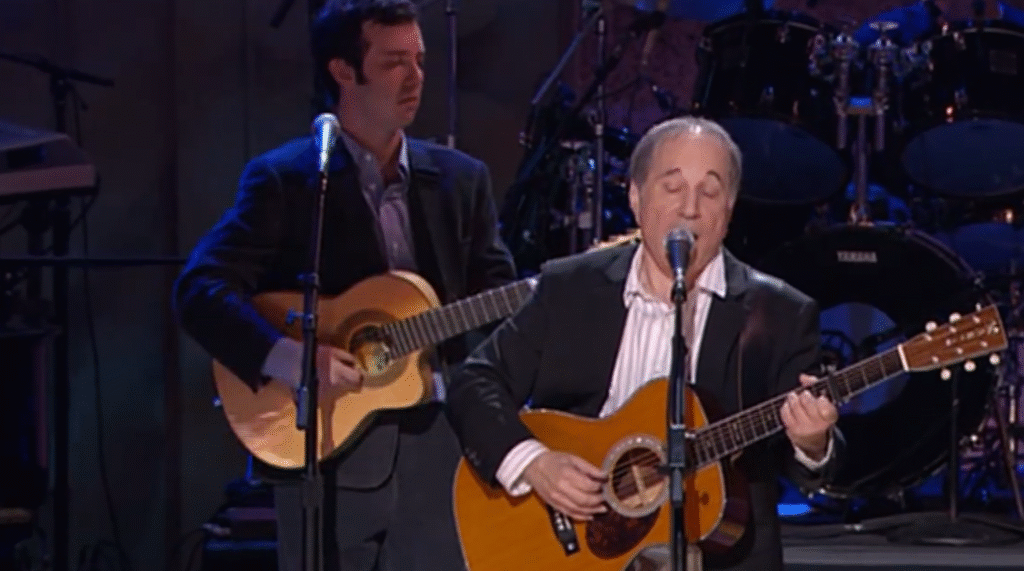Lulu Simon has demonstrated to the world in recent days that she is much more than just Paul Simon’s daughter. Her voice, which she developed via music and experience, has become remarkably distinct, especially since she came out against actor Richard Gere for selling the house where she grew up. The home, which was situated on 31.8 acres of peaceful Connecticut, had served as a haven for her during her early years as well as a place of inspiration and emotion where songs and memories were created.
Lulu brought attention to the emotional toll that real estate transactions frequently take by expressing her outrage in an Instagram story. Her message was straightforward, emotionally charged, and supported by a digitally altered image of Gere with her deceased pets—an image that remarkably successfully turned personal grief into a digital performance. Some thought it was dramatic, but others thought it was brutally honest.
Gere purchased the estate in 2022 with the promise that he would maintain its character, but instead decided to sell it off in parcels, which sparked the controversy. According to Lulu, that choice broke a tacit understanding based on memory and trust. It was more than just a house. It served as the background for peaceful Sunday afternoons, family recordings, and creative childhood moments. For her and many of her followers, the decision to destroy it felt more like an act of erasure than a change.
Table: Profile of Lulu Belle Simon
| Category | Details |
|---|---|
| Full Name | Lulu Belle Simon |
| Parents | Paul Simon (Father), Edie Brickell (Mother) |
| Siblings | Adrian Simon, Gabriel Simon, Harper Simon |
| Date of Birth | March 1995 |
| Place of Birth | Manhattan, New York City |
| Profession | Singer, Songwriter |
| Debut EP | Lulu Simon (2019) |
| Latest EP | Muscle Memory (2022) |
| Known For | Emotional pop music, outspokenness on social issues |
| Notable Controversy | Criticism of Richard Gere over sale of childhood home |
| Instagram Handle | @lulusimonofficial |
| Reference | https://people.com/all-about-paul-simon-kids-7963432 |

Lulu’s public image is largely based on her music, which is bold, emotionally charged, and lyrically vulnerable despite the recent controversy. Her 2022 EP, Muscle Memory, explores themes of personal conflict and nostalgia. Written primarily by herself, the project is noticeably more mature and in-depth than her debut. Songs like “I Wanna Break Ur Heart” have a subdued melancholy that is especially relevant for young listeners dealing with heartbreak, while also echoing Carly Rae Jepsen’s pop hooks.
Lulu developed a voice that is both recognizable and original by focusing on her own songwriting process, which was frequently influenced by early musical games she played with her parents and siblings. She has mentioned artists who combine pop sensibility and introspection as creative influences, such as Kim Petras, The 1975, and Taylor Swift. Finding that balance is difficult, but Lulu does it with incredibly effective simplicity.
Being the daughter of two famous musicians can lead to both empowering and confining expectations. To keep her family from hearing, Lulu once talked about sneaking into her bathroom to sing quietly while the water ran. That type of creative privacy is surprisingly necessary, especially in a home where music is played constantly. It gave her the self-assurance to write music without comparisons or circumspect acclaim.
Her siblings have pursued careers in music as well. Adrian has toured with their father and performed under the name “Ade,” while Harper, the eldest son of Paul Simon, has worked as a journalist and musician. However, Lulu is unique among them due to her unreserved presence and openness. She doesn’t hold back when expressing her emotions, whether it be in Instagram captions or lyrics. In a culture that frequently values carefully manicured perfection, that kind of authenticity seems especially necessary.
By using social media strategically, Lulu has developed a small but devoted fan base. Her posts, which are frequently candid and funny, feature her hiking with friends, posing in secondhand clothing, or sharing her thoughts on the process of creating music. When combined with her talent, this relatability makes her extremely versatile. She is creating a sound that is entirely unique to her generation rather than attempting to be a copy of her parents.
Lulu’s story touches on more general issues of memory, value, and artistic inheritance in light of current conflicts over legacy and land. Finding their own voice and preserving the places that helped shape it are frequently the challenges faced by second-generation artists. The Richard Gere incident is especially symbolic because of this. One bulldozer at a time, a piece of creative identity was being torn away in addition to the house being sold.
By addressing this loss in public, Lulu is taking part in a larger discussion about the commercialization of memory and the ways in which younger artists are taking back emotional control of their narratives. Her response might have come across as theatrical, but in the fast-paced attention economy of today, a little drama is frequently necessary for clarity. And she had a very clear one.
Although Lulu’s future is still uncertain, the path she is taking seems encouraging. Her narrative is becoming clearer, her music is changing, and she is becoming more self-assured. Her foundation is both artistically sound and emotionally resilient, regardless of whether she pursues more collaborative production or sticks with indie pop.
Paul Simon’s children might continue to carry on parts of his legacy in the years to come as he continues to withdraw from the stage due to hearing loss. But Lulu is choosing to remix his path—drawing from the past while creating something unique—instead of just copying it. Even though her songs aren’t yet at the top of the charts worldwide, they still have an impact, especially on listeners who are looking for heart and honesty.

